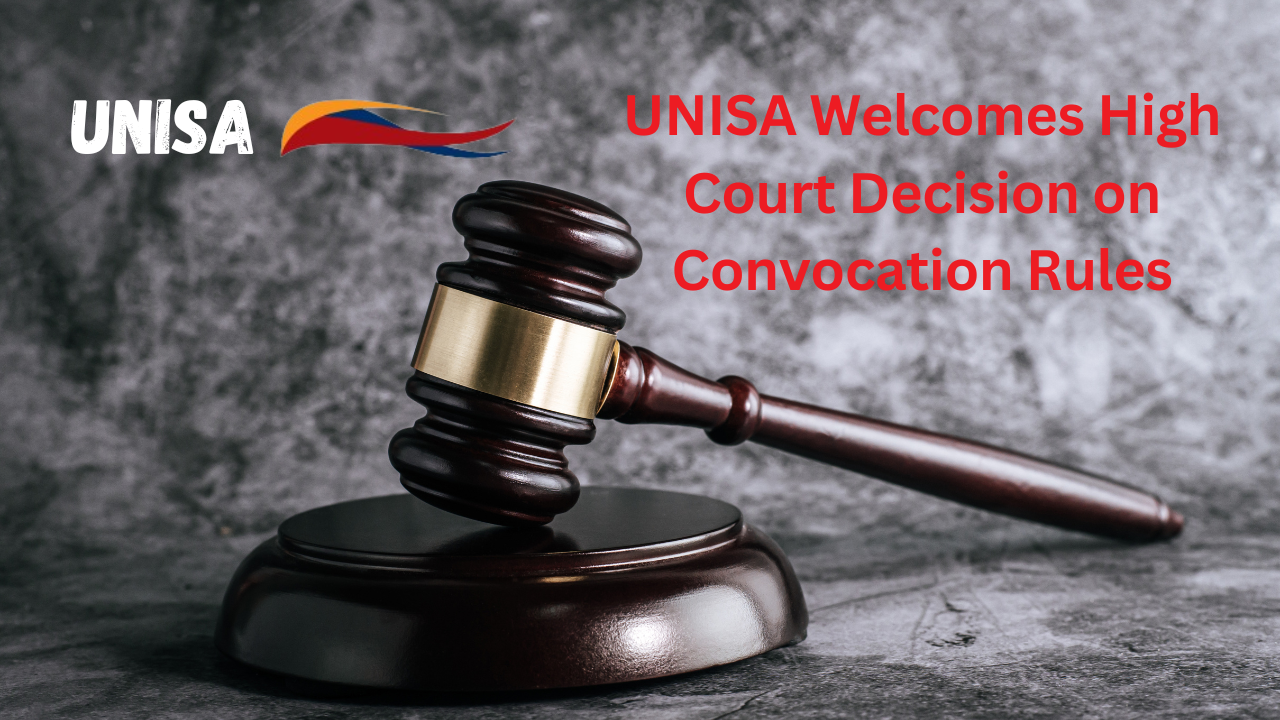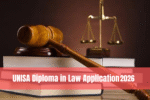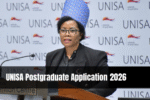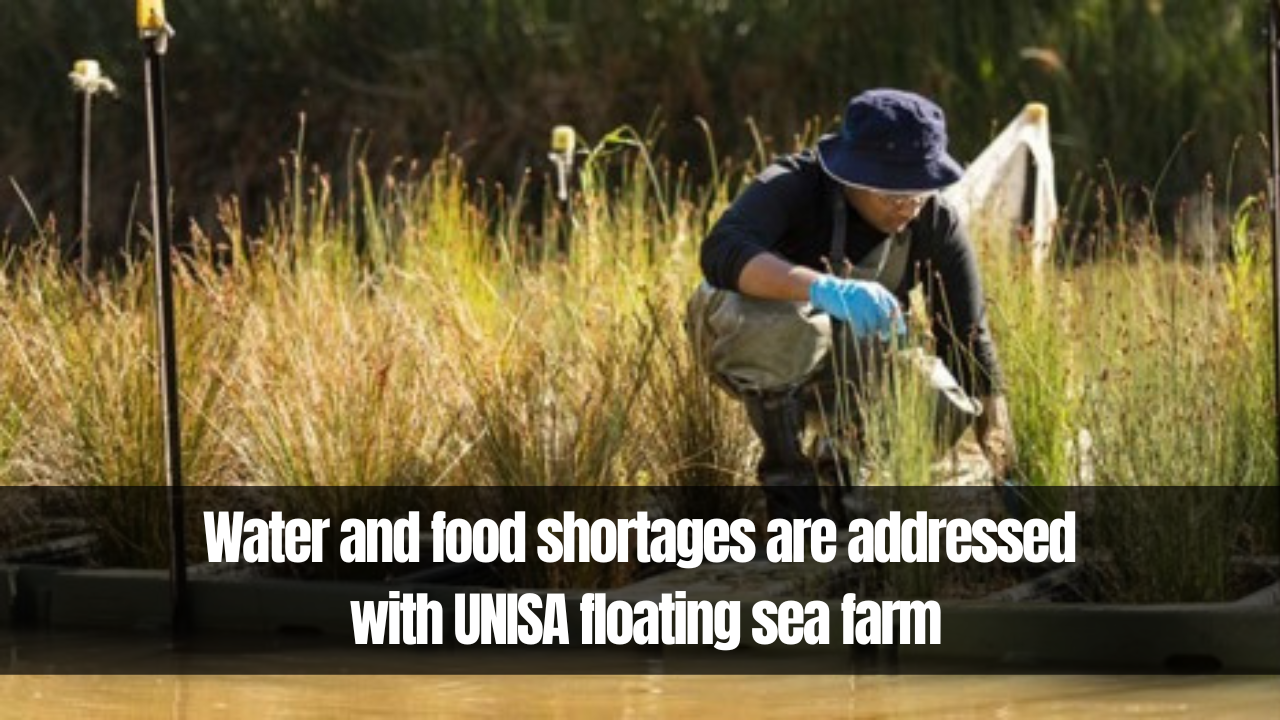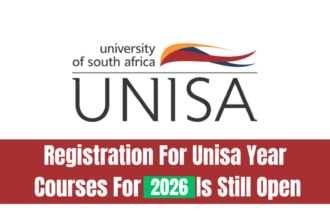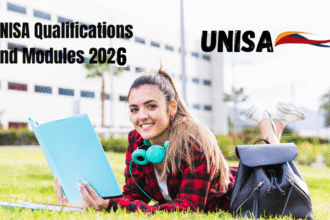UNISA Welcomes High Court Decision on Convocation Rules. The University of South Africa (Unisa) recently celebrated a significant legal victory as the Pretoria High Court dismissed an application to review and invalidate the university’s Convocation rules.
The case, initiated by Mr. Simamkele Xani, marked an important moment for Unisa, reinforcing its right to set standards for governance and leadership selection within its Convocation.
This ruling, which took place on October 24, 2024, addressed the criteria for eligibility in Unisa’s Convocation elections, a critical element in maintaining the integrity and operational stability of South Africa’s largest open distance learning institution. Below, we explore the background, legal considerations, and broader implications of this case.
Unisa’s Convocation Rules Challenge
Unisa’s Convocation, a formal body representing alumni, is responsible for advising on university governance matters, giving graduates a voice in shaping the institution’s future. To maintain transparency and uphold standards in leadership, Unisa established specific eligibility criteria for candidates aspiring to hold Convocation positions.
In 2023, Mr. Simamkele Xani brought forward two applications against Unisa’s Convocation rules. His grievances revolved around two main issues:
- Interdicting the 2023 Convocation AGM: The first part (PART A) of his application sought to prevent the annual general meeting (AGM) scheduled for December 11-12, 2023, on the grounds of eligibility concerns.
- Challenging Convocation Criteria: In the second part (PART B) of his application, Xani aimed to have the court review and annul Unisa’s decision to add additional eligibility criteria for candidates in Convocation leadership elections.
PART A and PART B of the Case
The legal proceedings on this matter unfolded over several months. Initially, PART A was granted, temporarily postponing the 2023 Convocation AGM until the court could review PART B, where the core arguments on criteria eligibility were contested. As the hearings progressed, the High Court ultimately dismissed PART B, solidifying Unisa’s authority to amend its rules without overstepping any statutory limitations.
The High Court’s decision against Mr. Xani’s application was accompanied by a ruling to cover costs, a strong indication of the court’s stance on the legitimacy of Unisa’s Convocation regulations.
High Court’s Findings and Reasons for Dismissal
The court’s decision to uphold Unisa’s eligibility rules rested on several legal principles and factual assessments. Below are the key reasons for the dismissal:
| Reasons for Dismissal | Explanation |
|---|---|
| Failure to Prove Institutional Statute Amendment | The court found that Xani could not provide evidence of any amendment to Unisa’s Institutional Statute. Unisa’s existing eligibility criteria were deemed appropriate and within its rights as an educational institution. |
| Lack of Evidence for Higher Education Act Violation | Xani’s claims were found baseless by the court, as he did not show any infraction against the Higher Education Act 101 of 1997. This act governs South African universities, ensuring educational institutions maintain autonomy within defined legal frameworks. |
| No Constitutional Violation | Xani could not substantiate any breach of the South African Constitution by Unisa’s actions. Without evidence of constitutional violations, the court found no grounds to invalidate the criteria. |
Unisa’s legal team argued that Xani’s participation in the election, even after challenging the rules, further weakened his case. By entering and subsequently losing the Convocation election, the dispute was deemed moot by the court, effectively nullifying any grounds for review.
Legal Implications for Higher Education in South Africa
The High Court ruling reaffirms the autonomy of higher education institutions in South Africa, empowering them to enact policies that uphold the quality and governance of their respective bodies. This autonomy is essential for the following reasons:
- Quality Assurance: Universities have the mandate to define leadership criteria to ensure the effective governance of institutional affairs.
- Institutional Stability: By upholding Unisa’s right to set Convocation criteria, the ruling reinforces the stability of university governance structures.
- Setting Precedents: The case establishes a legal precedent that will likely inform future disputes in South African universities over Convocation and alumni governance roles.
Unisa’s Position and Rationale for Convocation Criteria
Unisa’s decision to establish and modify eligibility criteria for Convocation candidates aligns with its commitment to high standards of leadership within its community. By ensuring that Convocation leaders meet specific criteria, the university is safeguarding its integrity and ability to serve its large student population effectively.
What Are Unisa’s Convocation Criteria?
The Convocation’s criteria primarily emphasize a candidate’s commitment to the university, prior involvement in alumni activities, and adherence to governance standards. These requirements help filter candidates to ensure those who hold leadership roles within the Convocation are best suited for representing Unisa’s alumni and advising the university on governance matters.
Broader Implications for Convocation Membership and Alumni Representation
This case brings attention to the critical role Convocations play in university governance. As a body, the Convocation serves as a bridge between alumni and the university administration, providing a structured way for graduates to contribute their perspectives on institutional matters. Here are a few implications of the ruling for Convocation membership:
- Enhanced Representation: With strict eligibility requirements in place, alumni are better represented by experienced and committed leaders.
- Alumni Influence in Governance: Convocation leadership plays an advisory role in university decision-making, and having eligible, vetted leaders strengthens this influence.
- Accountability: Convocation leaders are accountable to both the university and the alumni body, ensuring that they act in the institution’s best interests.
Conclusion
The High Court’s ruling on Unisa’s Convocation criteria underscores the importance of institutional autonomy in South African higher education. By allowing Unisa to uphold its Convocation eligibility rules, the court has reinforced the university’s right to set governance standards, benefiting both current and future alumni.

